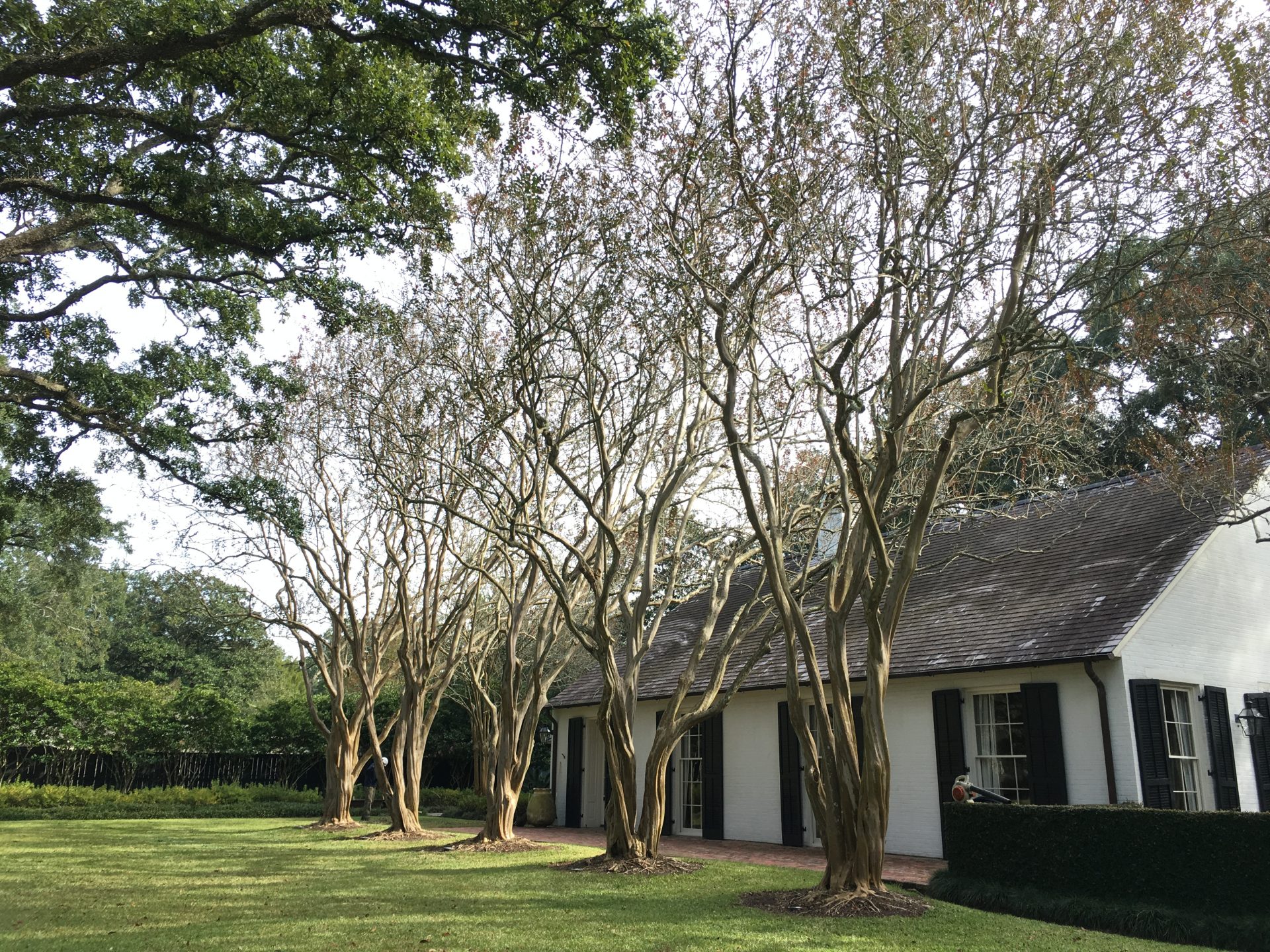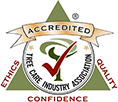 Do you bag your mowed grass, pull the weeds in your yard, or rake and bag the fallen leaves in your yard? If you answered yes, then you should consult an educated arborist about starting a Tree Fertilization / Plant Health Care Program. There is a huge difference between trees growing in a natural forest and trees growing in an urban environment. Forest trees get their nutrients naturally from all the decomposition occurring around them. Trees in an urban environment are deprived of natural decomposition, and they tend to struggle getting the nutrients they need to be truly healthy!
Do you bag your mowed grass, pull the weeds in your yard, or rake and bag the fallen leaves in your yard? If you answered yes, then you should consult an educated arborist about starting a Tree Fertilization / Plant Health Care Program. There is a huge difference between trees growing in a natural forest and trees growing in an urban environment. Forest trees get their nutrients naturally from all the decomposition occurring around them. Trees in an urban environment are deprived of natural decomposition, and they tend to struggle getting the nutrients they need to be truly healthy!
Of course we all want our trees to look beautiful and grow the way nature intended them to grow, but with out proper maintenance this is not possible in the urban tree world. You pick the proper tree for your area and then you expect it to flourish like it would in nature. Well like I said above, this isn’t possible with out the proper nutrients your tree desires to grow into its best self! These nutrients are possible with the proper fertilization done by an educated arborist or plant health care professional. Trees growing in parking lots along side walks near construction zones or sites, and in front yards have more stress placed on them. Each site has different watering, pruning, mulching and fertilization requirements. Therefore, it is critical to the long term survival of these urban trees that a proper Tree Fertilization/Plant Health Care Program be established.
Some of the stress on your urban trees can be very visible. We recommend that you check your trees or ask an arborist to check your trees for: shorter than normal annual twig growth, undersized leaves that are fewer in number, dead branches and branch tips, leaf veins darker than leaf margins, and leaves any other than dark green such as yellow or purple. If you are seeing these things then it is definitely time to consult an arborist/ plant health care professional.
This being said, once your tree is showing visible signs of stress from lack of nutrients or what not, it may be too late or it may take a lot of time to get your tree back to its optimal growth state. So yes it is important to look for the signs of tree stress listed above, but it is also a better idea to be proactive and get your trees on a proper tree fertilization program before the signs of stress set in. At Bofinger’s Tree Service, we prefer to create a healthier urban environment in a proactive way rather than in a reactive way. That means, treat your trees before the problems start! To me this makes sense!
Urban trees are way to important to leave to nature for their ultimate care. They aren’t growing in a forest, so it is up to you to get them the nutrients they need. Trees in an urban environment are just as important as the trees in our forest and in some cases I believe they are more important due to all of the benefits they give to our urban habitats. So get out there and check your trees and if you can’t determine the need for tree fertilization then call an educated arborist / plant health care professional and get them to your home to make sure your trees have the nutrients they need to continue their optimal growth for years and generations to come!
“Healthy trees make healthier people!”
Bofinger’s Tree Service Mission Statement:
We believe in safe, superior service and strengthening client relationships through honesty, education, and awareness that trees play a vital part in our community while promoting a greener environment.







